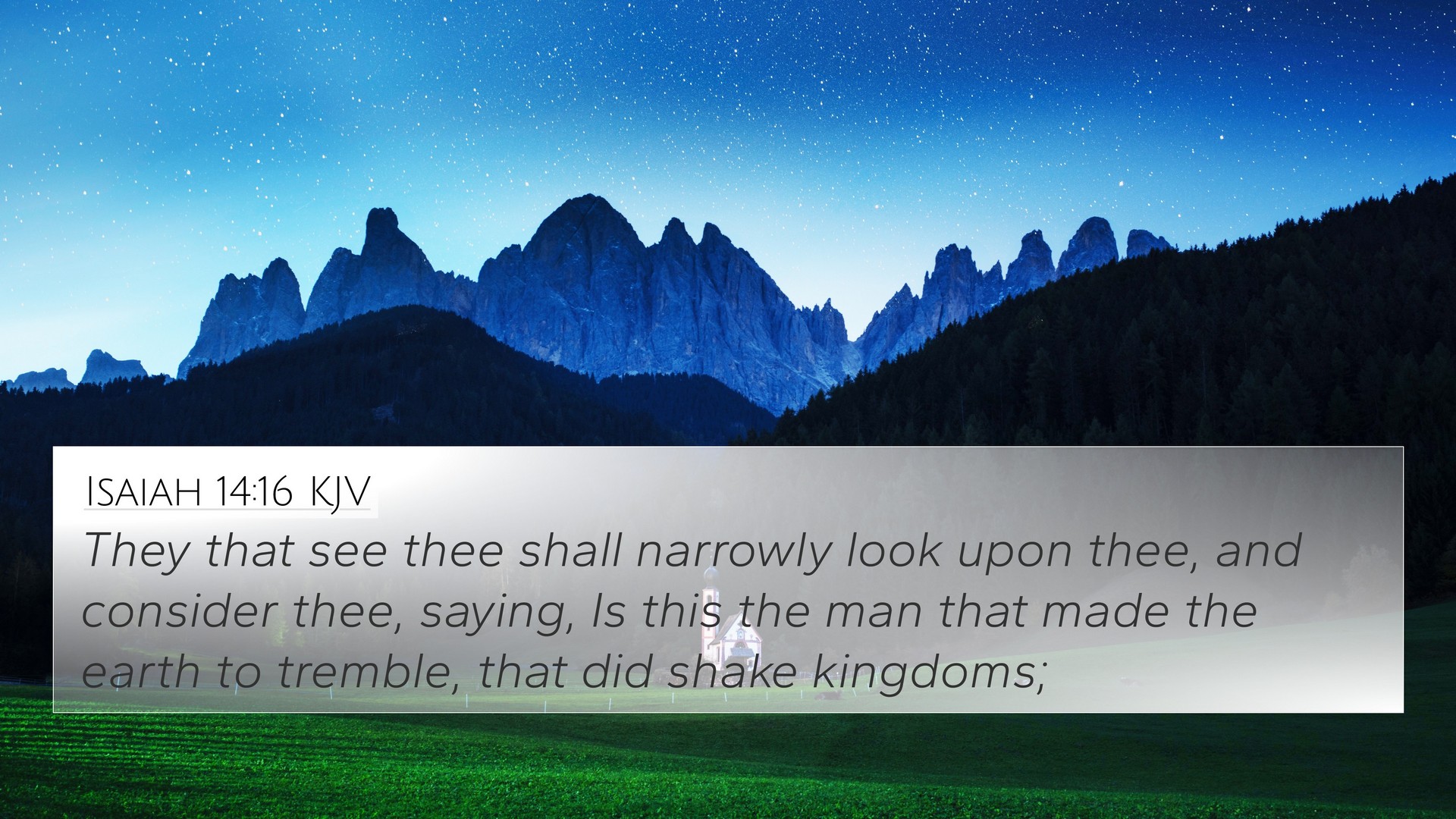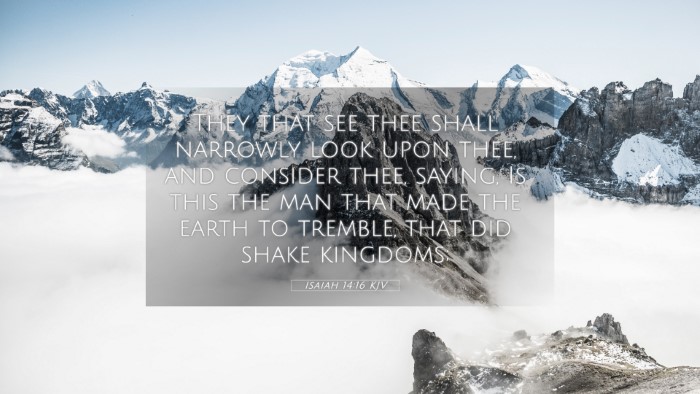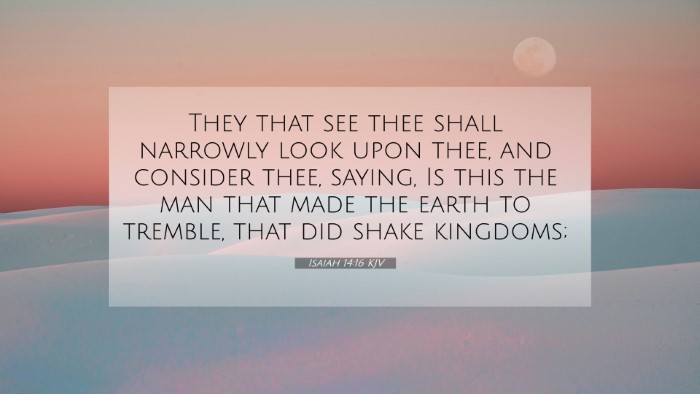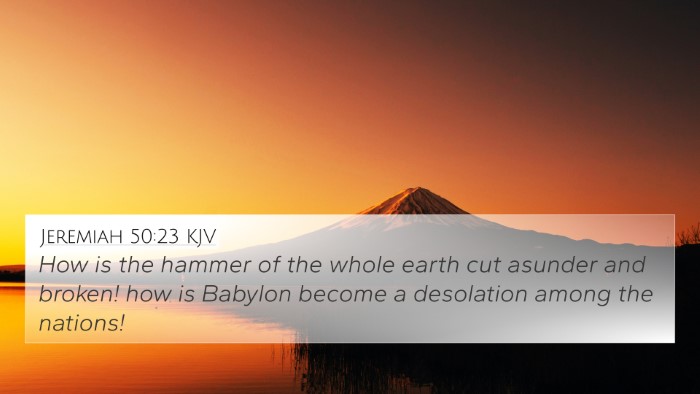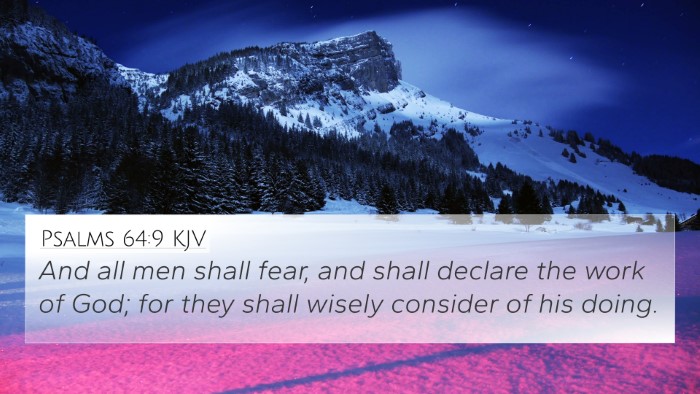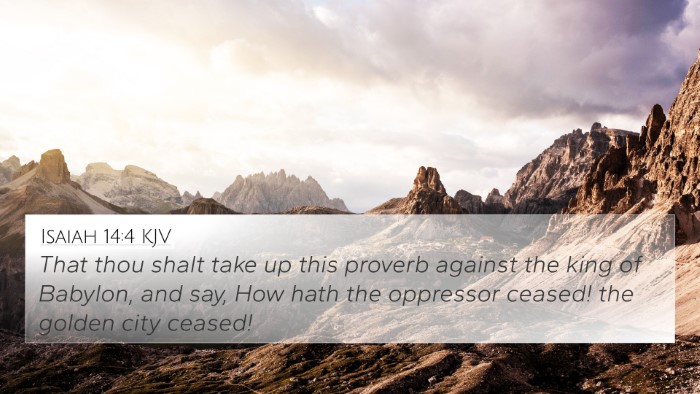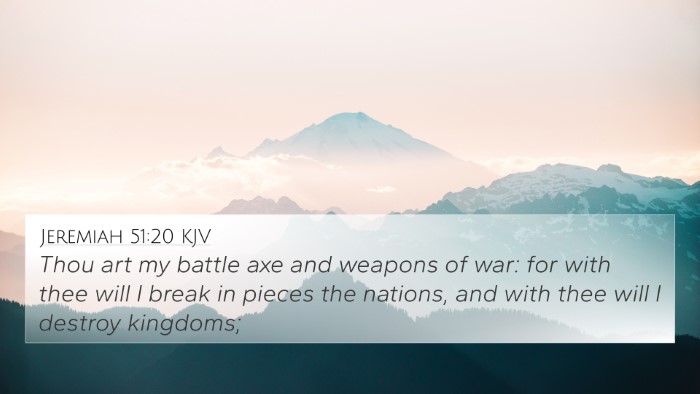Understanding Isaiah 14:16
Verse: "They that see thee shall narrowly look upon thee, and consider thee, saying, Is this the man that made the earth to tremble, that did shake kingdoms?" (Isaiah 14:16, KJV)
Summary of Meaning
Isaiah 14:16 addresses the downfall of a once-mighty figure, often interpreted as a metaphor for the king of Babylon or a representation of prideful humanity. This verse highlights the stark contrast between the perceived greatness of the individual and their ultimate humiliation. The "man that made the earth to tremble" serves to emphasize how power can lead to arrogance and eventual destruction.
Insight from Commentaries
-
Matthew Henry:
Henry explains that this verse reflects the astonishment of the nations when they see the fallen state of a powerful ruler. The term "consider" suggests deep reflection, indicating that observers are shocked to find such a fearsome leader now powerless and humbled.
-
Albert Barnes:
Barnes elucidates that the verse points to the recognition of the fallen's true nature once the threat has been removed. He notes that those who once feared this ruler are now viewing him with contempt, illustrating the transient nature of earthly power.
-
Adam Clarke:
Clarke emphasizes that the phrase "Is this the man?" captures the incredulity of those who once revered or feared the ruler. He links this moment of realization to broader themes of divine justice, showing that God ultimately holds sovereign authority over all rulers.
Thematic Connections
This verse connects to several significant themes throughout the Bible, including:
- Pride and Humility: The downfall of proud rulers is a recurrent theme (Proverbs 16:18).
- God's Sovereignty: God's control over earthly kingdoms is affirmed in Psalm 75:7.
- Justice Against Oppression: The prophetic message often brings hope for the oppressed (Isaiah 10:12).
Cross-References
Isaiah 14:16 has several cross-references that enhance understanding:
- Isaiah 14:15 - The fate of the rebellious one.
- Revelation 18:10 - The fall of Babylon as a symbol of worldly power.
- Ezekiel 28:17 - The fall of a prideful figure.
- Luke 10:18 - The fall of Satan as a significant event.
- Jeremiah 50:23 - Another prophetic account of Babylon's destruction.
- Revelation 20:10 - The ultimate defeat of evil.
- Psalm 37:35-36 - Observing the fate of the wicked.
Applying the Insights
In today's context, this verse serves as a sober reminder of the impermanence of earthly power and the inevitability of God's justice. For those studying scripture, it opens avenues for cross-referencing and thematic exploration. By examining how this verse echoes throughout the Bible, readers can gain a deeper understanding of God’s unfolding plan and justice.
How to Use Bible Cross-References
Utilizing tools for Bible cross-referencing enhances scriptural study and understanding:
- Bible Concordance: Use a concordance to find related verses and themes efficiently.
- Cross-Reference Bible Study: Design a study plan that includes various scriptures related to specific themes found in Isaiah 14:16.
- Bible Reference Resources: Explore commentaries, study Bibles, and online tools to enrich your study.
Conclusion
Isaiah 14:16, while focused on the fall of a powerful figure, encapsulates broader themes of pride, justice, and the transient nature of human authority. As we engage in detailed cross-referencing and thematic explorations, we uncover deeper insights and connections between the scriptures, fostering a richer understanding of the Bible as a unified narrative of God's sovereignty and mercy.
